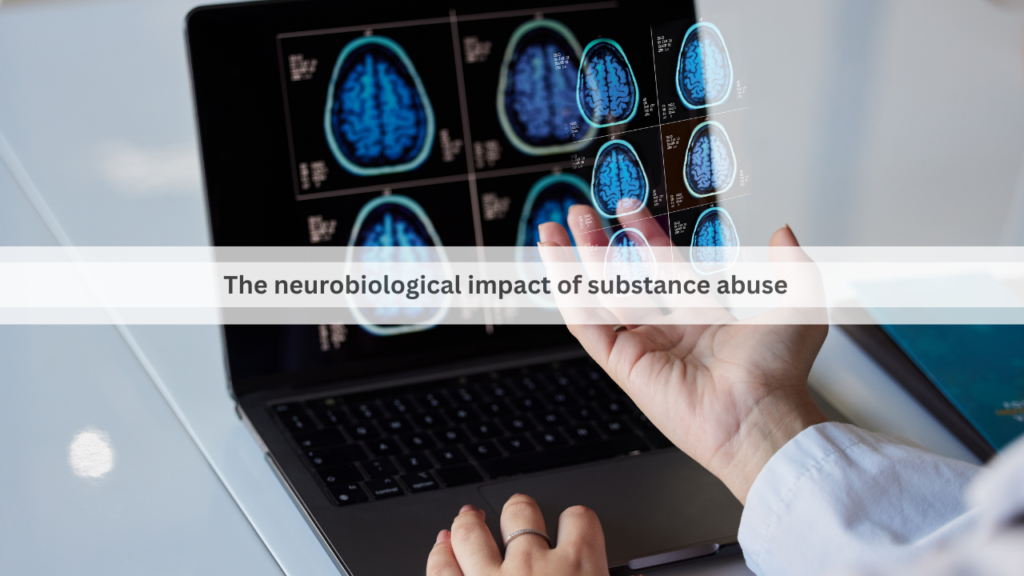
Substance abuse has profound effects on the brain, altering its structure and function in ways that can have lasting consequences. This article delves into the neurobiological impact of substance abuse, examining how various drugs can alter brain function and lead to significant cognitive, emotional, and behavioral changes.
The Brain’s Reward System
The brain’s reward system is at the core of understanding substance abuse. This system, primarily involving the neurotransmitter dopamine, is responsible for the feelings of pleasure and reinforcement that encourage individuals to repeat certain behaviors. When drugs are introduced, they hijack this system, causing an unnatural surge in dopamine levels. This creates intense feelings of euphoria, which can lead to repeated drug use as individuals chase that pleasurable high.
Mechanisms of Action
Different substances interact with the brain in various ways, but all ultimately disrupt normal functioning. For example, opioids like heroin and prescription painkillers bind to specific receptors in the brain, mimicking the effects of natural pain-relieving chemicals. However, their potent effects lead to a rapid development of tolerance and dependence. Cocaine and methamphetamine, on the other hand, cause a massive release of dopamine, which not only produces a powerful high but also leads to the depletion of dopamine reserves, impairing the brain’s ability to experience pleasure without the drug.
Alcohol, another commonly abused substance, affects the brain by enhancing the activity of gamma-aminobutyric acid (GABA), a neurotransmitter that inhibits brain activity. This results in the characteristic depressant effects of alcohol, such as reduced anxiety and impaired motor function. Chronic alcohol abuse can lead to neurodegeneration and cognitive deficits.
Structural and Functional Changes
Long-term substance abuse can lead to significant structural and functional changes in the brain. Imaging studies have shown that chronic drug use can reduce the size of brain regions involved in decision-making, memory, and behavior control, such as the prefrontal cortex and the hippocampus. These changes are associated with the cognitive impairments and behavioral issues commonly observed in individuals with substance use disorders.
Additionally, repeated exposure to drugs can alter the brain’s connectivity, disrupting communication between different brain regions. This can impair an individual’s ability to regulate emotions, make sound decisions, and control impulses, further perpetuating the cycle of addiction.
Neurotoxicity and Neuroinflammation
Many substances of abuse are neurotoxic, meaning they can cause direct damage to brain cells. For instance, methamphetamine is known to be particularly damaging, causing significant neuronal death in areas of the brain associated with reward, memory, and emotion. Similarly, excessive alcohol consumption can lead to widespread brain damage, including the development of conditions such as Wernicke-Korsakoff syndrome, a severe memory disorder.
Substance abuse can also trigger neuroinflammation, an immune response in the brain that can exacerbate neuronal damage. Chronic inflammation has been linked to various neurodegenerative diseases and can further impair cognitive and emotional functioning.
Recovery and Rehabilitation
Despite the significant impact of substance abuse on the brain, recovery is possible. The brain has a remarkable ability to adapt and heal, a phenomenon known as neuroplasticity. With appropriate treatment and support, individuals can regain cognitive and emotional function over time. Behavioral therapies, medication-assisted treatment, and supportive environments can help to facilitate this recovery process.
The neurobiological impact of substance abuse is profound and multifaceted, affecting the brain’s structure and function in ways that can have lasting consequences. Understanding these effects is crucial for developing effective treatments and interventions. By recognizing the complex interplay between drugs and the brain, we can better support individuals on their journey to recovery and help mitigate the long-term consequences of substance abuse.